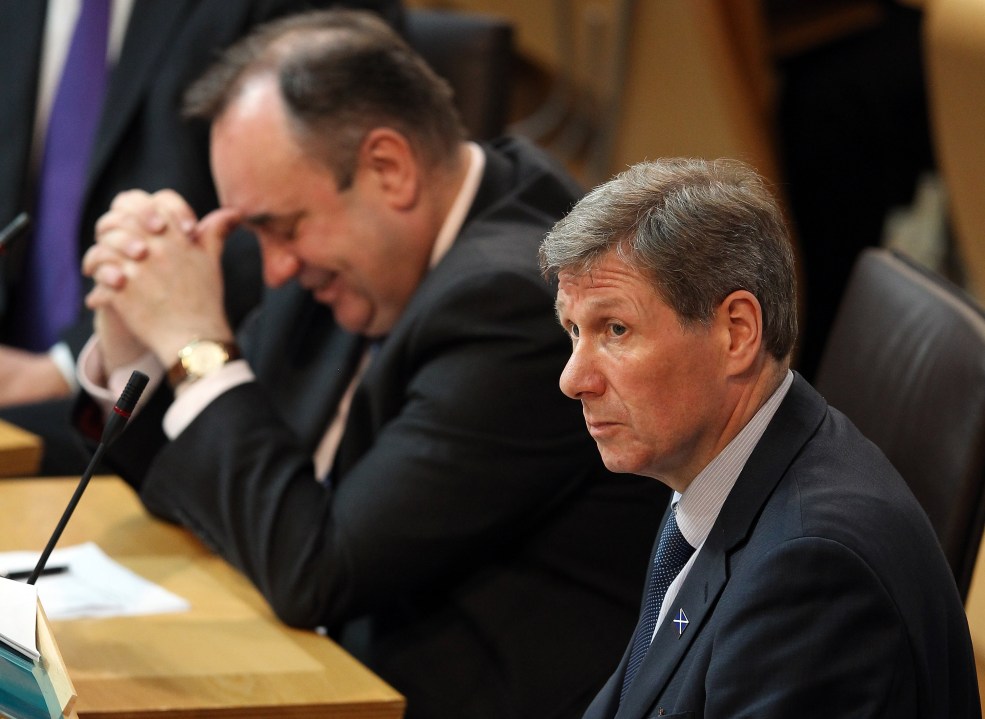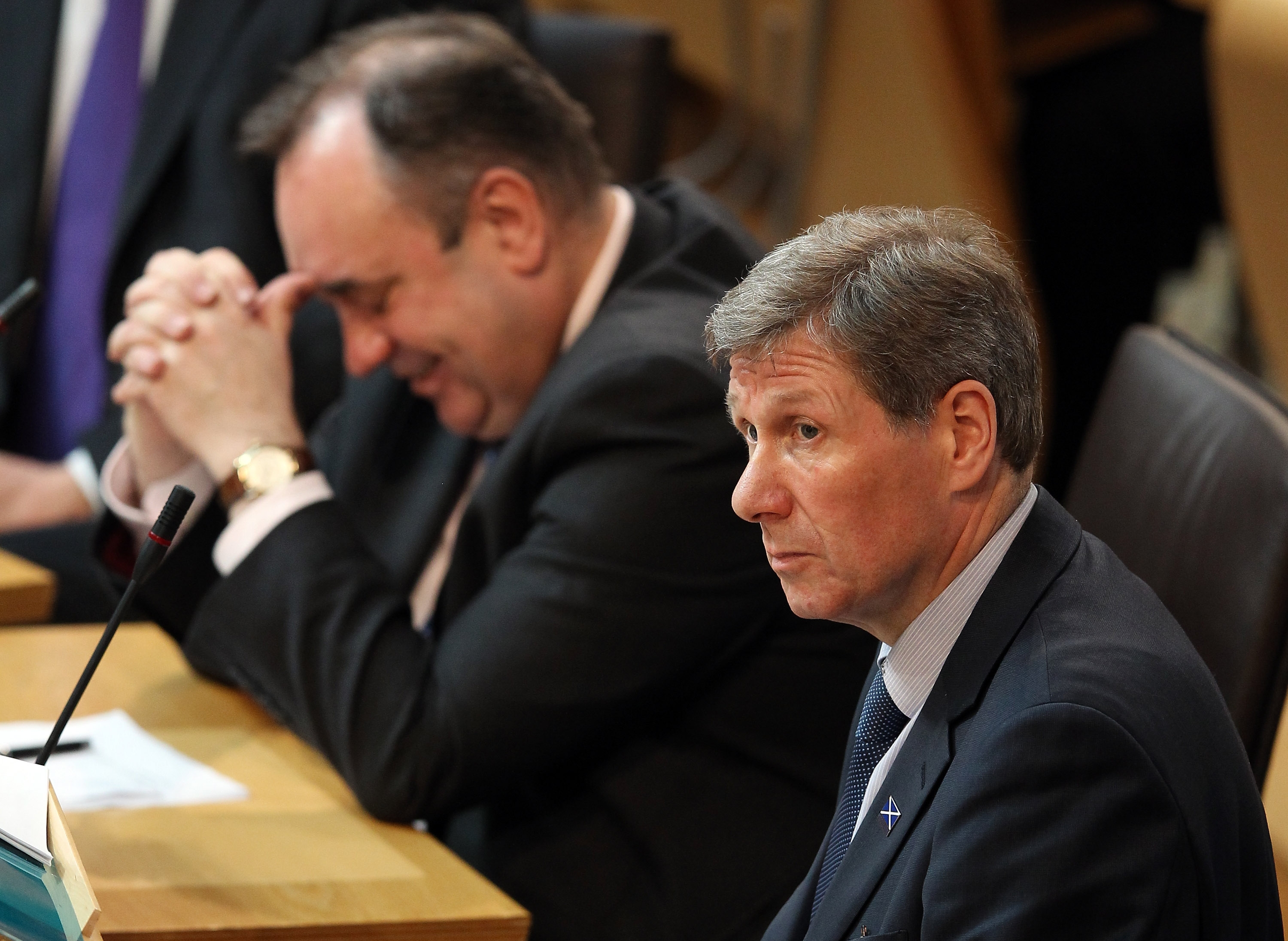Of course, as the SNP keep reminding us, this year’s general election had nothing to do with advancing the case for independence. Besides, please, you must remember there’s much more to the party than its thirst for national liberation. Any suggestion to the contrary is quite deplorable.
Which is fine, I suppose, as far as these things go. Unfortunately these things do not go very far. If you doubt this, ask yourself this question: would the SNP advocate, far less pursue, any policy it thought likely to hinder the drive towards independence?
Helpfully – for us, if not for the party leadership – this question was answered by Kenny MacAskill earlier this week. Writing for the party’s pet organ, The National, the former Justice Secretary confirmed that Scottish government policy is subject to one test above all: whether it advances the independence cause.
Freed from the burden of office (not before time, it might be noted), MacAskill now deplores the Scottish government’s disinclination to grant prisoners voting rights. Fair enough. It’s a point of view. More interesting – and much more revealing – is the reason MacAskill gives for defending a position he cheerfully concedes is, in his view, otherwise indefensible. It was, you see, “the wrong thing done, albeit for the right reasons”.
And what were those reasons? Why, “It was to avoid any needless distractions in the run-up to the referendum, to deny the right-wing press lurid headlines that could tarnish the bigger picture.” I suppose we should be grateful for MacAskill’s candour.
But it does leave one wondering what other right things might have been sacrificed on the altar of independence-above-all-else? How many other inconvenient or distracting principles have been ditched to better persuade Scots to back independence? And if senior members of the party have cheerfully sacrificed their own estimate of good governance in the past might they not happily do so again if it is reckoned that failing to do so might jeopardise the drive for independence?
In other words, what principle actually governs the SNP? The national interest or a party interest conveniently reinterpreted as the national interest? By MacAskill’s own admission, after all, good policy must sometimes be sacrificed for fear that not doing so might complicate the pursuit of independence.
Nor is this an isolated example. The SNP’s belated enthusiasm for joining NATO was, it is true, approved at a party conference. But little effort was made to persuade members that joining NATO was actually in the national interest. On the contrary, the calculation was brazenly political: signing up to NATO would make it harder for Unionists to attack the SNP’s defence policies. The party went along with it because the membership was persuaded recanting the SNP’s anti-NATO stance advanced the cause of independence. (And never mind that doing so made their anti-nuclear credentials ridiculous: the party now wants to be defended by nuclear weapons; it just doesn’t want them to be in Scotland. A kind of nuclear NIMBYism by which means we can pretend the nukes don’t exist at all. Except they do, you know.)
Then there’s the vexed issue of currency. In 20 years the SNP has advocated three different policies: an independent Scottish pound, joining the euro, and maintaining sterling. Have the facts really changed as frequently as that or is it, rather, that party policy has shifted to endorse whatever seems most politically convenient at any given time? To, that is, the option that most surely smoothes the road to independence.
Now of course there is more to the SNP than just its enthusiasm for independence. Most, though far from all, of its members are solidly on the centre-left and their convictions, the constitutional question aside, are not so very different from those found within the Labour party. But it differs from other parties in having a single rallying point, a single unifying aspiration that makes it an unusually broad church, one in which investment bankers can find common cause with shop stewards. And that belief in independence in turn means that almost everything else can, if necessary, be sacrificed in pursuit of that greater, more glorious, goal.
And that is fine, you know, even though it also means it is reasonable for other voters to wonder how many other wrong policies have been pursued for the right reasons. Trust is perhaps the most valuable commodity in politics and, right now, whether we like it or not, the SNP enjoy some large measure of trust. And that, in turn, makes Kenny MacAskill’s admission notable and telling. Because it should prompt voters to ask whether the SNP is pursuing policy because it really believes in that policy or only if, on the contrary, doing so is the most effective way of selling the idea of independence?
An idea that, by the way, has not disappeared even if the party is busy downplaying it right now. Almost every SNP member I’ve spoken to in recent weeks wants another referendum within ten years. If that requires pursuing the wrong policies for the right reasons then I imagine that’s a sacrifice most are happy to make. For the ends, as always, justify the means. Even, perhaps especially, when the means are the wrong ones.









Comments